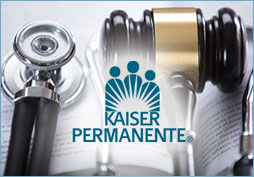What to expect at an ER visit
More than 130 million people go to the ER each year. Getting to the emergency room, whether you ride by ambulance or are taken there by a friend or family member, can be a frightening proposition. You’ve been injured and are in pain, you’re seriously ill, or have suffered a heart attack or a stroke. What can you expect in the ER?
A triage nurse will do a brief exam and check your vital signs including temperature, pulse, and blood pressure as well as taking a brief medical history. Make sure to tell the triage nurse all of your symptoms, including if you’re in pain. This will help determine how quickly you need to be treated.
You may have to wait while more seriously injured or ill patients are seen first. After arrival and the initial assessment, you’ll go through the registration process, providing basic information. You’ll be asked to sign a consent form in order to receive treatment as well as for financial responsibility. If you arrive by ambulance, that information will be provided by you or whomever accompanied you.
Testimonial
From start to finish
During your intake, it’s important, when talking to the nurse, that you or a family member thoroughly describe your problem or condition so that the nurse and other ER staff can properly prepare you for an examination by the doctor.
In the exam room, you may be attached to a monitoring device so that the nurse can track your vital signs. Your nurse may begin treatment based on your symptoms and established medical protocols related to your illness or condition. This may include collecting blood and/or urine samples, ordering x-rays, dressing a wound, or applying ice packs.
Kaiser Arbitrations

An ER doctor or physician’s assistant will be assigned to you. Once the doctor or PA has reviewed your case and performed an exam, he or she may order additional testing or diagnostic lab work. After all necessary testing is completed and the medical staff has the results, a decision will be made to treat and discharge or to admit you to the hospital for further testing and/or treatment.
Whether you’re treated and discharged from the ER or admitted to the hospital for further assessment and treatment, your nurse and treating physician are responsible for answering questions you or your family may have about your care and treatment.
Helping You Cope

The care you deserve
Emergency rooms can be crowded with sick and injured people. ER nurses and doctors have to work at a fast pace and make decisions with limited or no patient history, incomplete documentation, and medication lists. Unfortunately, mistakes happen which can have serious, if not catastrophic consequence, for patients
Medical errors can be the result of nursing care errors that occur during the triage exam. If the proper questions aren’t asked of a patient, this can result in medication errors. Failure to order appropriate medical tests can result in diagnostic errors. Infections may occur due to improperly sterilized instruments or contaminated needles.
If you feel that you or a loved one has been the victim of nursing negligence, it’s imperative that you engage the services of an experienced medical malpractice attorney. California attorney, Scott S. Harris, has been helping victims of medical malpractice for over 30 years.
Contact our office to schedule your free consultation today.
Meet Scott

